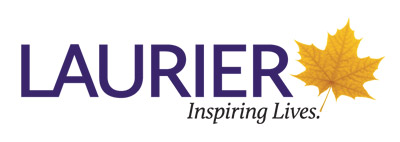Curriculum
Module 1
Module 2
Module 3
Module 4
Experiential Learning Pathways
Reflections
Evaluations
Module 1: Understanding Self
What are my values? What are my goals and priorities? How do I live those out in my life?
Learning Outcomes
-
Identify your values and explore their connection to the non-profit sector and specific organizations within the sector
-
Understand how/why mission, vision and values are the foundation for successful development of an organization
-
Explore and understand the relationship between an organization's vision and values and the behaviors and practices that enable success
Topics of Exploration
-
What is the non-profit sector?
-
Understanding and identifying values
-
Living my values (Personal Mission Statement)
-
Organizations' Mission, Vision and Values
-
Integrating my values with the Non-Profit sector
Module 2: Understanding the Non-Profit Sector and its Evolution
What do I know about the sector and its evolution? What are the roles and models of non-profit organizations? How do non-profit organizations work?
Learning Outcomes
-
Identify and understand non-profit organizational structures and the evolution of the sector
-
Understand relationship building and the community dynamics involved with non-profit leadership
-
Engage with others to support learning through collaboration and case studies
Topics of Exploration
-
Your assumptions about the non-profit sector
-
Evolution of the non-profit sector in Canada
-
Current trends in the sector
-
Non-profit models of operation
-
Community and relationship building
-
Terminology (e.g. social enterprise, social economy, co-operative, volunteer-based non-profit, etc.)
Module 3: Skills and Professionalism in the Non-Profit Sector
What are the skills and competencies required in the sector to support innovation and change?
Learning Outcomes
-
Articulate your existing skill set and identify areas for growth
-
Explore the scope of skills required in the non-profit sector
-
Strengthen knowledge and understanding of professionalism and workplace expectations communication
Topics of Exploration
-
Identifying your skillset
-
The intersection and gaps between skills gained through school and the skills required of the non-profit sector
-
Professionalism and workplace expectations
-
Career services
Module 4: Critical Reflection
Personal experience of learning within the non-profit sector – How do I see my identified values and the non-profit sector after my engagement experience?
Learning Outcomes
-
Understand how to approach critical reflection in daily practice
-
Explore critical reflection and processing techniques
-
Connect understanding of critical reflection to application of it in final capstone
Topics of Exploration
-
Critical Reflection - how can I make meaning out of experience?
-
Tools for critical reflection "What happened? So what? Now what?"
-
Critical analyses of the non-profit sector
-
Reflections on the course and experiential pathways
Experiential Learning Pathways
Students may be provided with one of two options for participating in an experiential learning opportunity. The preferred option by most students, as noted through the Laurier certificate program, was for students to gain experience in a workplace. Students were encouraged to seek out opportunities of 15 hours in length at minimum to meet the requirement of the certificate program. This became challenging for them and staff assistance was required. In all cases though, it was essential that staff communicated with host organizations to introduce the certificate program and clarify expectations.
A second option was also offered to students to fulfil the experiential component, that of being engaged in a case study, developed by staff in conjunction with non-profit organizations. When designing a case study, it is important to find a balance between deliverables that are relevant to employer needs, while not critical to an organization's core operations. As this is a learning experience and, for many students, a first attempt at producing a professional report, a wide range of quality and commitment should be expected. Ensure that organizations understand this and are not left at a disadvantage in the case of submissions that do not meet targets or deadlines. That said, leave enough flexibility in the assignment design so that students who are so inclined have room to exceed expectations and show creativity.
Reflections
As this course was designed to exemplify best practices in experiential learning, a reflection assignment at the end of the course was a fitting conclusion. Not only did it help each student to identify the transformations in their values, competencies and understanding of the sector; it also provided the facilitators with valuable qualitative data regarding strengths, challenges and opportunities for future program delivery.
Evaluations
This course contained 4 pre and post evaluations, designed specifically around the goals of each workshop module. In addition, a final evaluation which sought numerical feedback on the course logistics and individual activities, along with qualitative feedback on learnings and impacts was implemented.
Please click to view evaluation samples:
Workshop 1 Evaluation
Workshop 2 Evaluation
Workshop 3 Evaluation
Workshop 4 Evaluation
Final Course Feedback form
